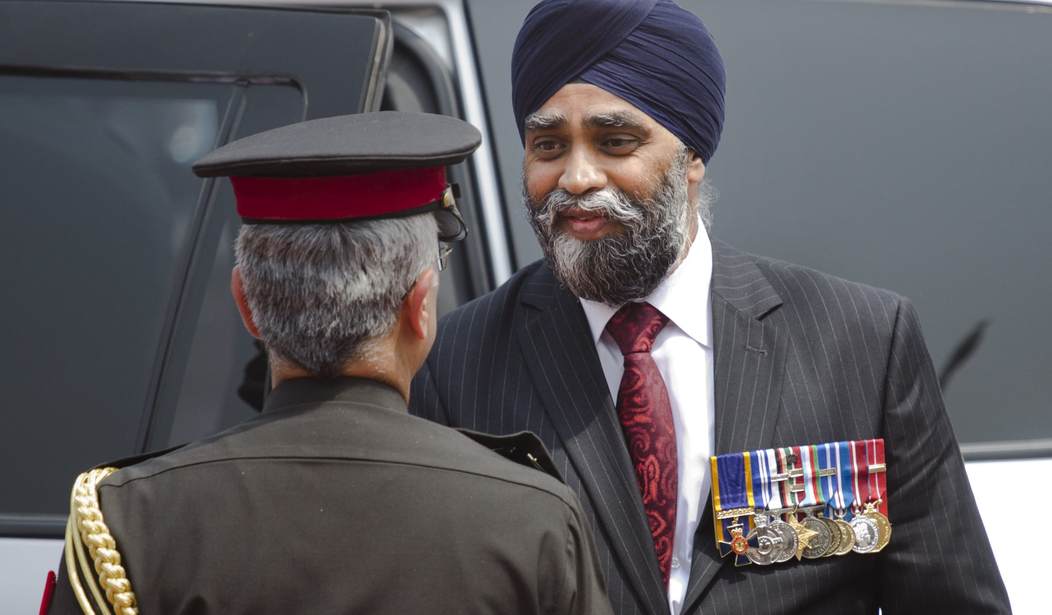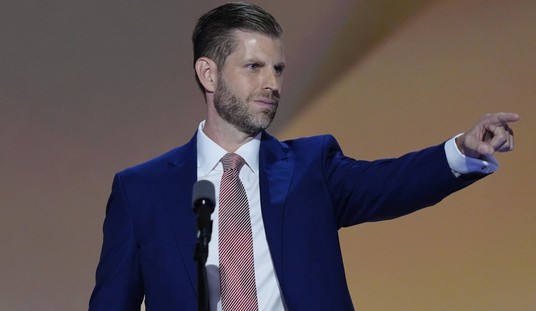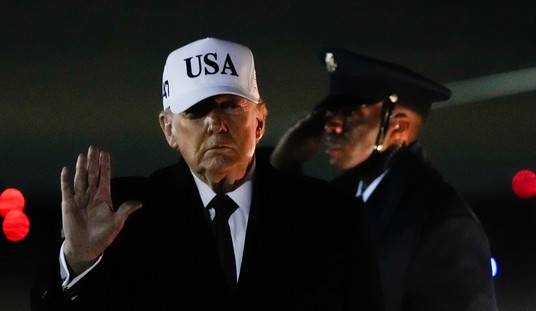WASHINGTON – Canada’s Minister of National Defense Harjit Singh Sajjan on Monday attributed a safe U.S.-Canadian border to positive relationships between police and local communities.
Sajjan’s comments come at a time when jurisdictions across the country are grappling with fractured relationships between African-American communities and police, as well as the ongoing debate about security at the Mexican border. During an event at the Wilson Center, the organization’s president and CEO Jane Harman asked Sajjan about successful border strategies in Canada, as well as the threat of terrorist entry into the United States through its northern border.
“When it comes to our border, it’s not a wall that can prevent anything,” Sajjan said. “It’s the procedures and the relationships that we have in place that’s going to make that difference, and it’s working extremely well, and we’re going to make sure it’s going to continue.”
Sajjan, a former regimental commander in the Canadian Armed Forces and a former gang-unit cop in Vancouver, said that the police force’s connection with the Canadian population allows law enforcement to detect warning signs that it normally would not.
“That relationship with communities allows police to see things that are outside the norm,” Sajjan said. “It allows us to – when something is outside that norm – for the community to have a relationship with some police agencies to say something is up here. No terrorist is going to walk around with sign on their back saying ‘I’m a terrorist,’ but what normally happens is each community, or neighborhoods even, know what the norm is.”
“The one thing about our borders – there is never any guarantee when it comes to terrorism, but the work that we do preventatively is extremely important, and one thing I can say with absolute certainty – our police agencies in Canada work extremely well with other agencies, as well,” Sajjan said, adding that the real security is the relationship with local community.
Last week, American law enforcement officials and Rep. Scott Taylor (R-Va.) during an event on Capitol Hill discussed African-American distrust linked to recent controversial deaths of black men at the hands of law enforcement. For the past two congresses, Scott has introduced a resolution that would create police and community alliances around the country with the aim of improving communication between the two sides.
Sajjan also discussed Canada’s new defense policy, which is scheduled to be released on June 7 after more than a year of review and includes proposals on Canadian national security, the role of Canadian Armed Forces and an analysis of resources and demands. Sajjan noted that the analysis has been absent any decisions on the North American Aerospace Defense Command (NORAD), a joint U.S.-Canada effort in aerospace and maritime control, and North Warning System, a bi-national early-warning radar system. NORAD is the only bi-national command in the world, where both U.S. and Canadian officials serve over and under one another.
“What we didn’t want to do is just put a number into our defense policy for NORAD when we didn’t have analysis,” Sajjan said. “One thing (Prime Minister Justin Trudeau) wants is good evidence-based analysis, so we want to go through those discussions, have a good conversation, come up with the analysis and determine what the cost is, and then we’ll be presenting that at a later date.”
Both President Trump and Trudeau have expressed interest in modernizing NORAD. Sajjan commended Trudeau for the relationship he has established with the Trump administration, noting that the prime minister called the president following his victory and stated that Trump faces many problems in the world but Canada will not be one of them.
“Defense alone can’t be the solution,” Sajjan said. “Military buys you time. You need a whole government approach, a comprehensive approach to have an impact when it comes to security matters. So diplomacy is important. Capacity building is important.”









Join the conversation as a VIP Member